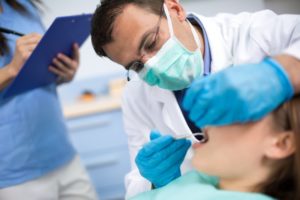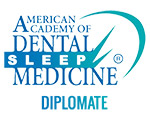
Across the country, states have been imposing additional restrictions on travel and businesses due to COVID-19. While many are taking additional steps to sanitize their workplaces and follow guidelines provided by the Centers for Disease Control and Prevention (CDC), dental offices were required to have incredibly strict sterilization protocols already. This makes them one of the safest places to be in during a pandemic. Today, you can learn what these standards are and why you have virtually nothing to worry about when it’s time for your next visit with a dentist in State College.
Hand Hygiene
Dentists and dental employees perform hand washing either with plain soap and water or antimicrobial soap. They may also use an alcohol-based hand rub to kill bacteria. Even prior to wearing gloves, dentists and team members will wash and disinfect their hands thoroughly before beginning any step of treatment.
Personal Protection Equipment
Dental professionals regularly use gloves, face masks, protective eye wear, face shields, and protective clothing whenever there is even a slight possibility for contact with any bodily fluids. Splashes can occur often when working inside the mouth, so you can expect dentists to be extra careful to reduce the spread of infectious disease.
Respiratory Hygiene
Dentists and team members are required to cover their mouths and noses when coughing and sneezing, dispose of used tissues, and wash hands immediately after possibly coming into contact with respiratory secretions. However, they also make sure to provide resources and receptacles for all patients, including tissues, masks, and enough space for all patients. In pandemics, patients who are symptomatic will be asked to reserve visits for emergency care entirely.
Sharps Safety
When a medical environment contains sharp objects, including scalpels, needles, or other pointed instruments, it should be assumed that they could be contaminated with blood or saliva. All used disposable instruments are thrown away in safe receptacles in order to prevent transmission. These objects are also handled with extreme care to prevent transmission to both patients and other dental employees,
Safe Injection Practices
There are many steps taken to ensure safe infection practices, including but not limited to:
- Never reusing needles or other materials for multiple patients
- Disinfecting needles before each use
- Using single dose vials and other single-use medical materials regularly
Sterile Instruments and Devices
Cleaning, disinfecting and sterilizing dental equipment is one of the most important protocols in a dental office. Dental assistants are specifically trained in this practice in order to create a safe and infection-free environment. Instruments and materials that are sterilized frequently include:
- Surgical instruments
- Periodontal scalers
- Mouth mirrors
- Amalgam condensers
- Reusable dental impression trays
- Digital radiography sensors
Clean and Disinfected Surfaces
Much like you would at home, dental employees clean and disinfect commonly touched surfaces multiple times throughout the day. Any surfaces that cannot be easily cleaned are covered in barriers that can be removed and disinfected separately. While commonly touched surfaces include dental chairs, it also includes countertops and seats in waiting areas.
While all of these steps are already common practice for a dental office, COVID-19 only forces dentists and their teams to take them even further. This way, you can feel at ease during your next dental appointment.
About Donald Marks Family Dentistry
Dr. Donald Marks and Dr. John A. Martin take the practice of reducing the risk of disease transmission very seriously and have since they became dentists. Their patients’ and team members’ safety is their highest priority, which is why they’ve taken all the necessary steps to reduce exposure of COVID-19 (including temporarily closing the practice and reserving appointments for emergency cases at this time.) If you need to reschedule a routine checkup or believe you’re experiencing a dental emergency, call the office or contact them through their website!




